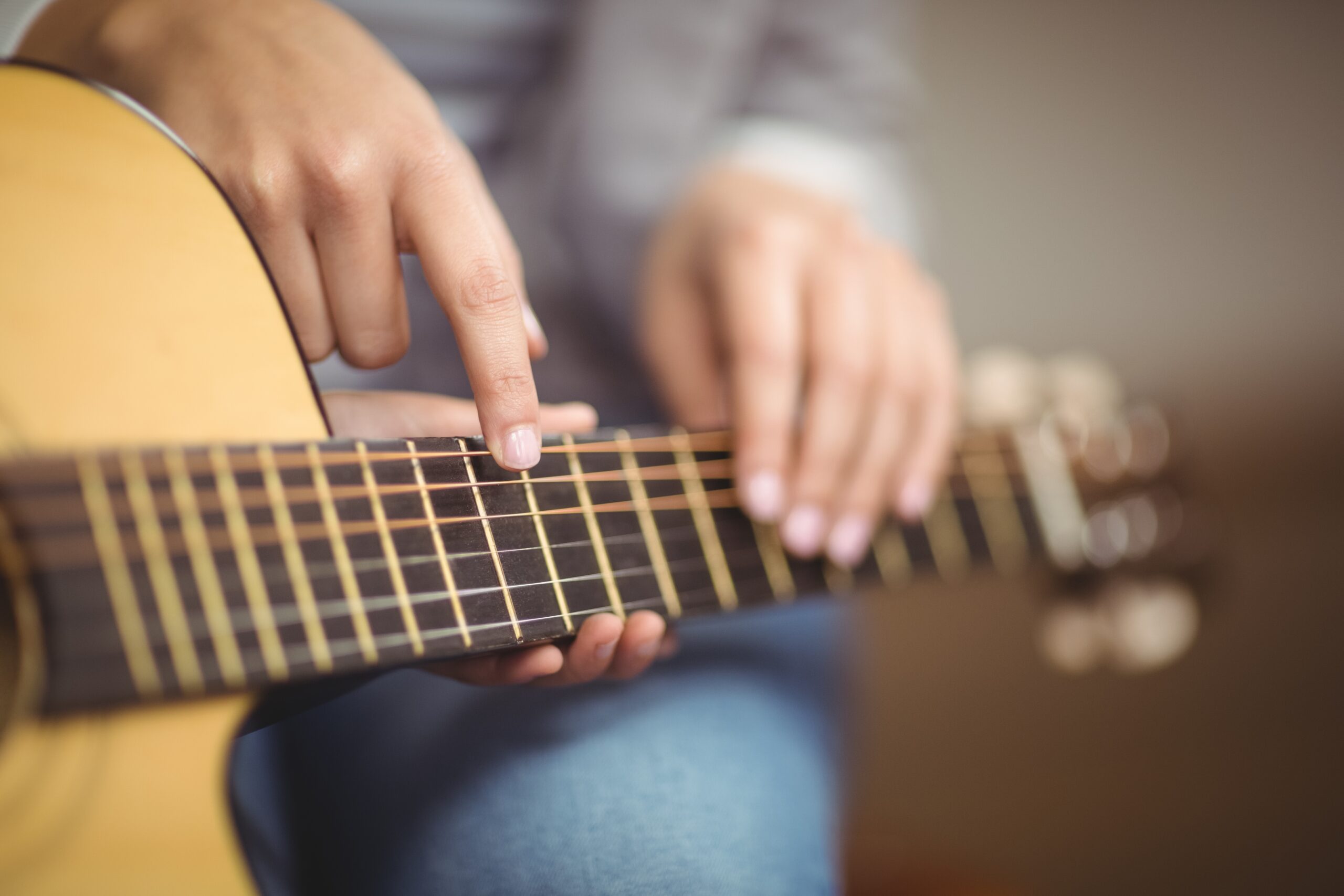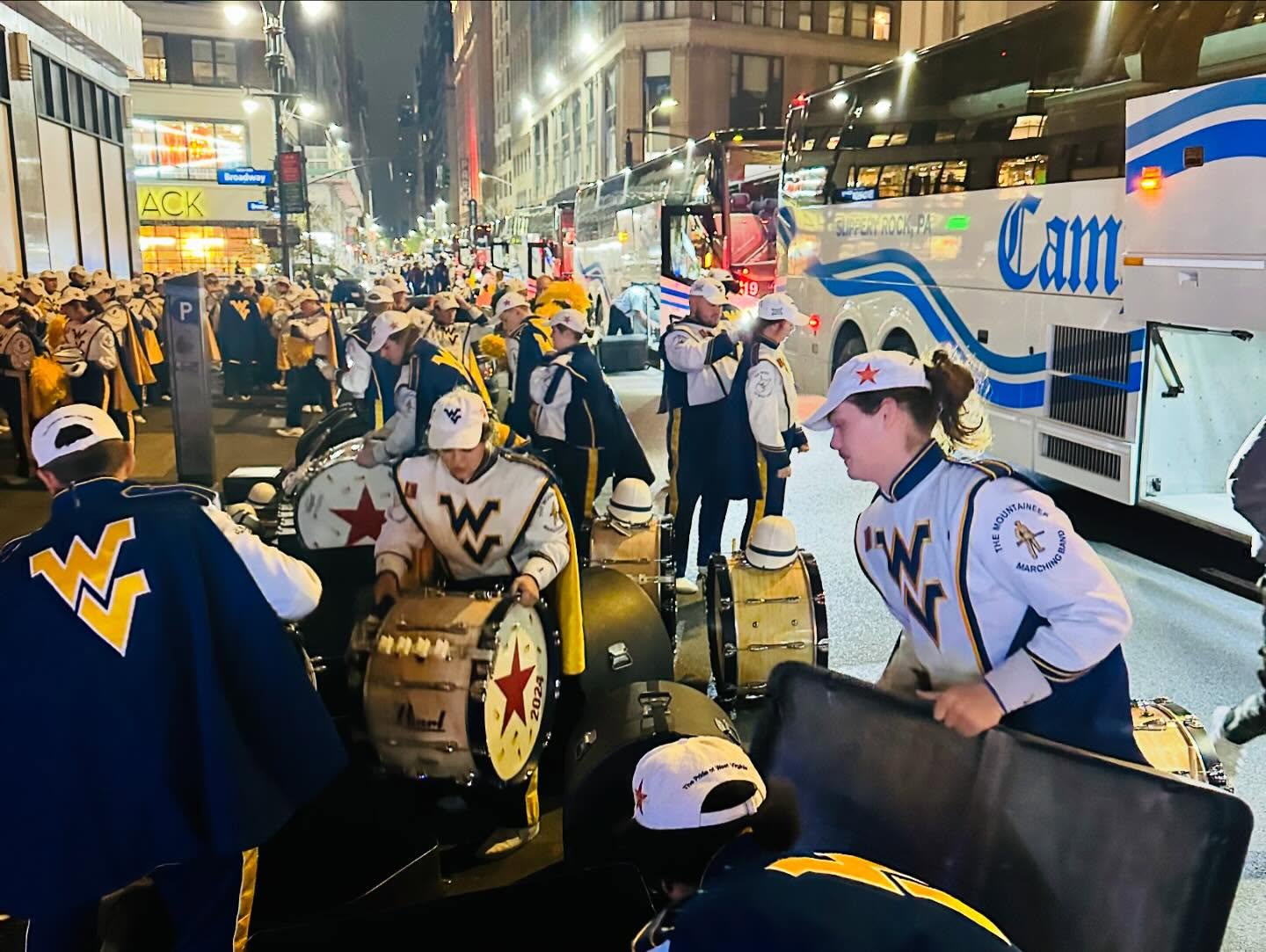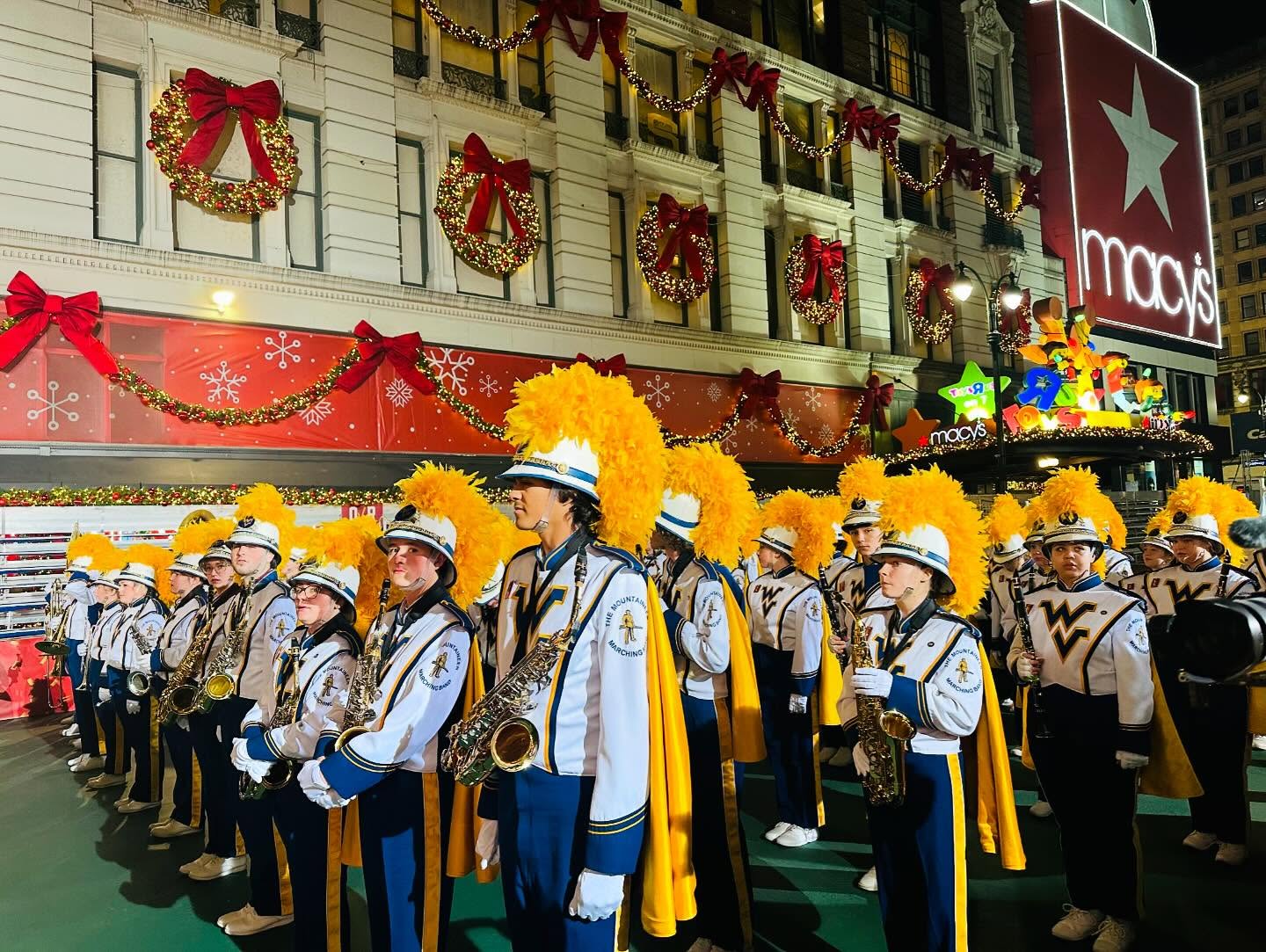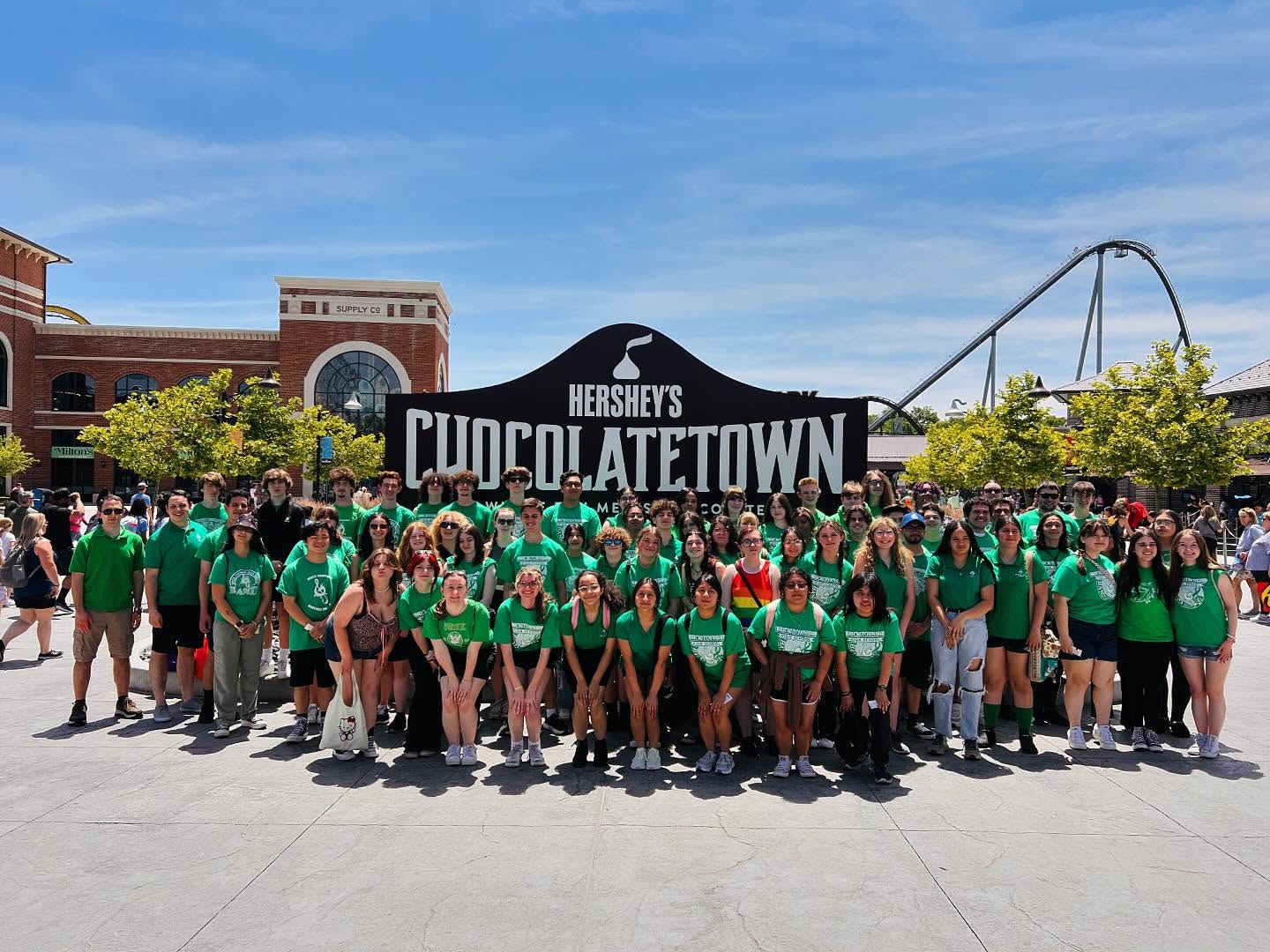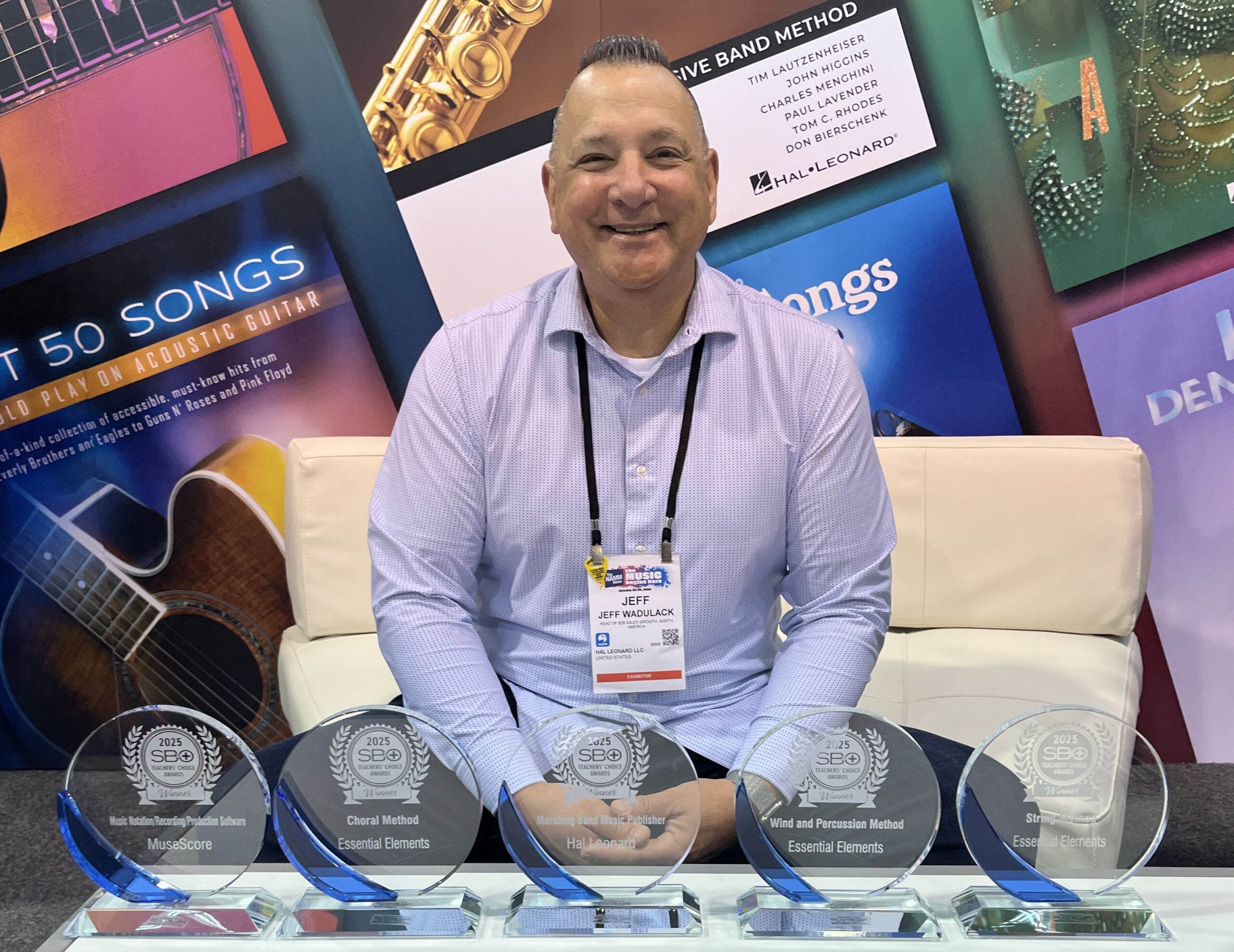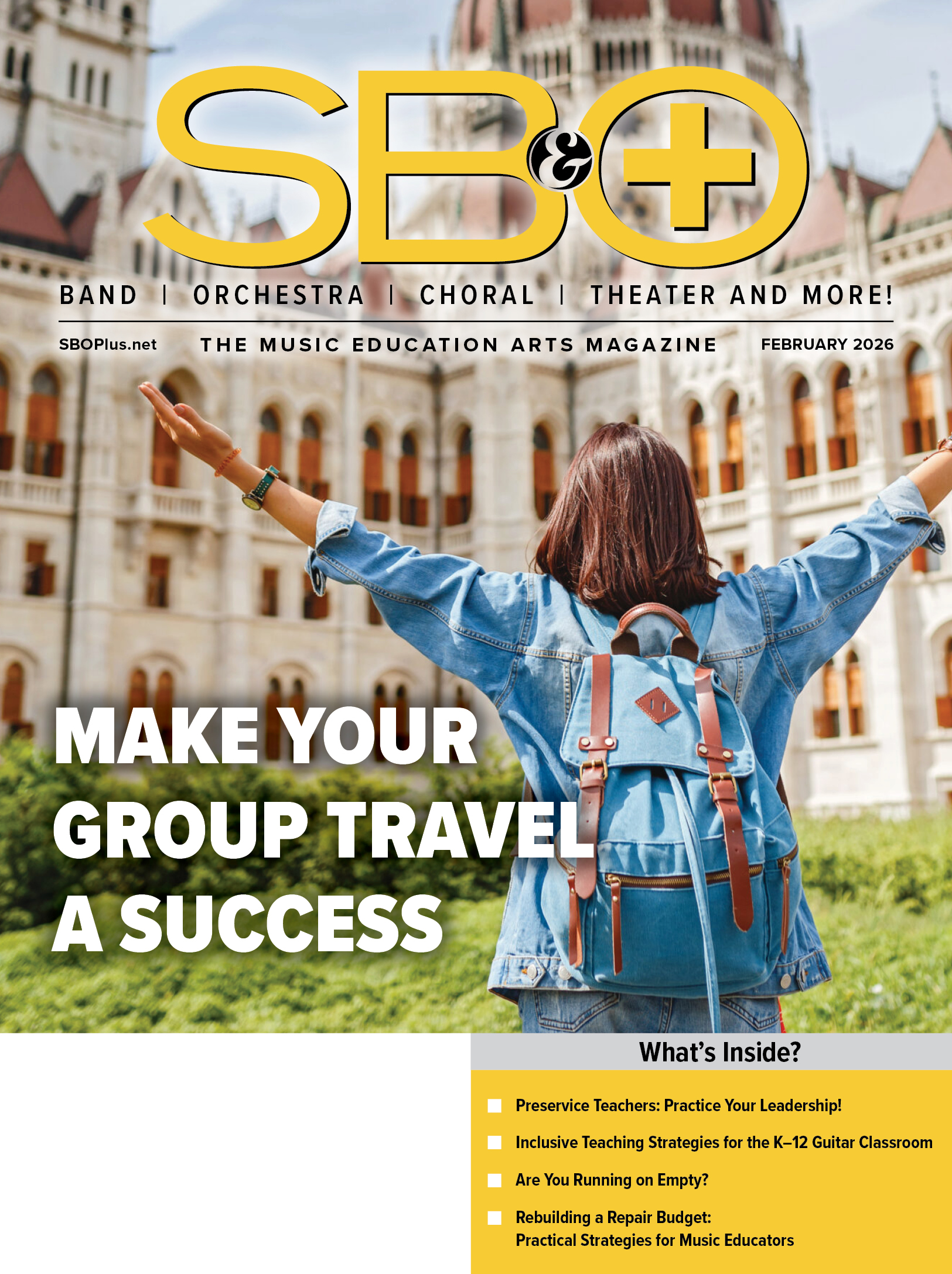Modern band, a music class that places popular music at the center of its instruction, has been gaining traction in the field of music education over the past 20 years. Recently, more articles are coming out on modern band and more music education associations have all-state modern band ensembles (including my home state of Kentucky). Teachers new to this type of class/ensemble may be interested but unsure of how to teach it. Many of those teachers may be familiar with Orff Schulwerk, sometimes referred to a Orff-Keetman. To help those teachers, let’s examine the pedagogy behind modern band, Music as a Second Language (MSL) and the parallels with Orff Schulwerk, a playful, active approach to music learning that centers student knowledge and creativity.
The pedagogy of modern band is based on an adaptation of Krashen’s (1981) five hypotheses of second language acquisition, which theorizes how people learn a second language: acquisition/learning, monitor, natural order, input, and affective filter. When applied to music, it is called music as a second language (MSL). First, acquisition/learning means that most music is learned informally before starting school music; therefore, music teachers should “speak” the type of music students know. In modern band classes, teachers recognize most students know and prefer popular music. Orff teachers do the same, mostly including repertoire from children’s play (i.e., playground games/songs and nursery rhymes/chants), although more Orff teachers have recently been also including popular music and media. Both MSL and Orff use children’s prior knowledge and honor the considerable amount of musical knowledge they bring to the classroom.
The monitor means students have a knowledge of the “rules” and there is time to think and use rules efficiently when performing; they are self-aware when performing, looking for areas in which they can succeed and improve. For example, knowing a four-chord pattern repeats in a popular song, a student only comfortable with playing three of the four chords knows exactly when to play the chords they know. The Schulwerk’s teaching process of “imitate, explore, create” helps students build a foundation for knowing the rules in music, which similarly develops their monitor.
The natural order says learning grammar has a natural order and should not be rigidly structured. Grammar-first instruction makes it difficult to discuss or read anything truly interesting or authentic to students. In a modern band classroom, teaching the theory behind a chord progression is less meaningful than learning the progression in a song first, then picking it apart. In an Orff classroom, identifying that a folk song ends with the solfège syllables “mi re do”, is less effective than teaching a singing game (i.e., Jump Josie) and identifying the solfège later.
Input states students need a musical vocabulary they understand to learn, and they need to be around more advanced musicians. Teachers in modern band and Orff Schulwerk classrooms immerse students in lots of active playing and they model music fluency often, particularly when guiding composition; they help children build the vocabulary they need to be able to construct a composition successfully. Both encourage peer modeling as well. Orff-Keetman teachers model lots of movement in the classroom, as music and movement in the Schulwerk is intertwined.
The affective filter refers to how much anxiety students feel in the classroom. Both modern band and Orff teachers aim to promote an environment where students feel little stress or anxiety and have good motivation and self-esteem. This is achieved through (1) group experiences prior to solos; (2) class compositions prior to partner or solo compositions, (3) mindful planning of lessons (knowing what students are comfortable with), (4) options for students to “pass” on turns; and (5) teacher affirmation of student responses when they speak up or solo musically.
Overall, the Orff-Keetman approach aligns with MSL and may offer additional tools for good teaching to modern band teachers. MSL, understandably, is focused on the aural skills, while aural/kinesthetic skills are more closely tied in the Schulwerk. Singing, another central component of the Schulwerk, is also not covered in depth in MSL. The Schulwerk taps into what children naturally do across cultures (e.g., playground musical culture), while MSL is more tied into the sonic landscape that children live in (through adults, media, context). In conclusion, understanding similar approaches to MSL, such as the Orff-Keetman approach, can help teachers begin modern band classes and further help modern band teachers improve upon their practice.
Dr. Vasil is an associate professor of music education at the University of Kentucky, the PreK–6 music teacher at Lexington Montessori School, and a certified Orff Schulwerk teacher.

